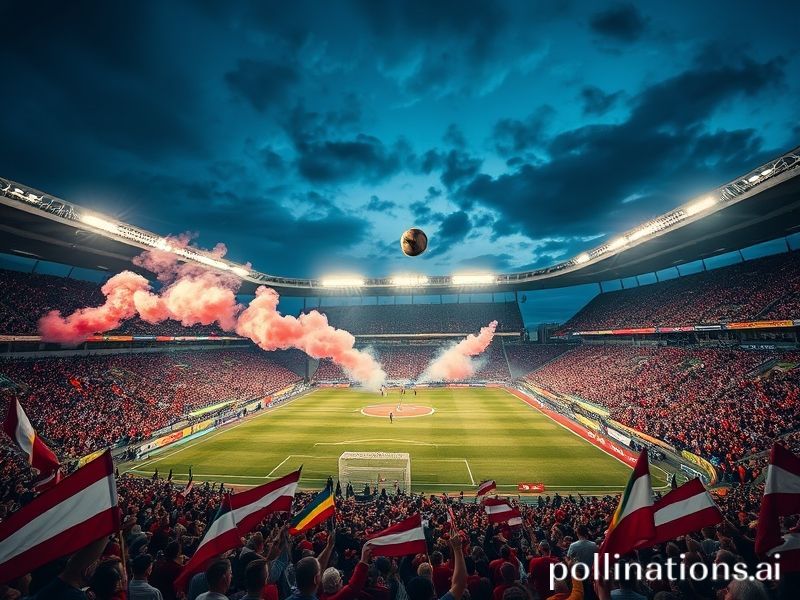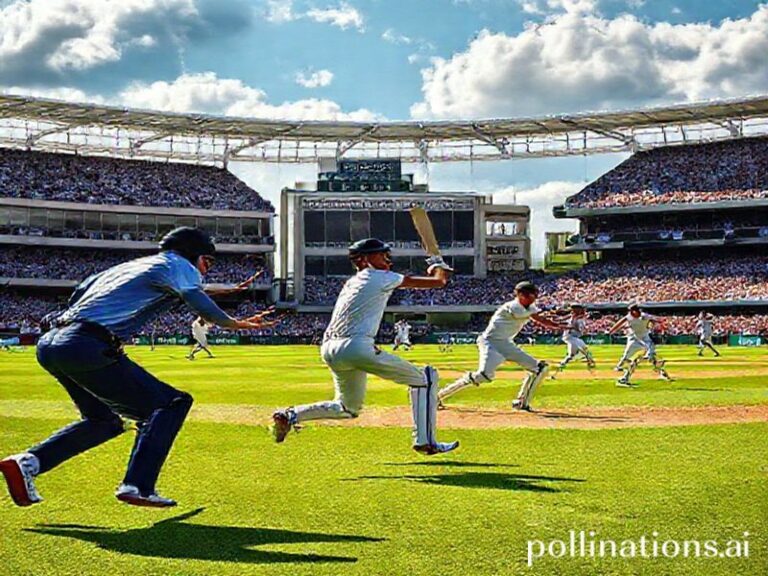Dinamo vs Farul: How a Forgotten Romanian Derby Explains Europe’s Midlife Crisis
Bucharest’s Ghosts and Seaside Mirages: Why Dinamo vs Farul Matters More Than Your Lazy Football Hot-Take
By the time the referee’s whistle splits the late-spring air at Arena Naţională, half the crowd will be checking crypto prices under the table while the other half debates whether to emigrate before the next election. Dinamo Bucureşti versus Farul Constanţa is, on paper, a mid-table Romanian Liga I fixture. In practice, it’s a darkly comic snapshot of post-Cold-War Europe trying to pay its gas bill with nostalgia.
Let’s start with the obvious: Dinamo, once the muscle-bound darling of the Securitate, now resembles an aging oligarch who has pawned the cufflinks but still swaggers into the casino. The club’s debts are a tidy metaphor for every state-owned enterprise that discovered “privatization” meant “fire sale to your cousin.” Across town, FCSB—the other half of the capital’s bipolar football identity—hogged the Champions League pedigree, leaving Dinamo to scrounge for relevance like a pensioner hunting deposit bottles. Yet the supporters keep turning up, partly out of habit, partly because shouting at 22 strangers in red feels cheaper than therapy.
Farul, meanwhile, is the seaside plot twist. Until recently, the club from Constanţa was a sleepy lighthouse keeper in Romanian football, admired mainly by Black Sea sailors and insomniacs scanning lower-league tables. Then Gheorghe Hagi—yes, the mercurial genius who once made Real Madrid’s midfield look like community theatre—decided to play benevolent godfather. Hagi injected money, youth academy swagger, and a marketing campaign that could sell sand to a camel. Results followed: Farul won the league in 2023, proving that even in a country where motorways evaporate into political promises, miracles just need a billionaire with childhood trauma.
Internationally, the match lands during a week when UEFA’s coefficient table resembles a spreadsheet of existential dread. Germany’s fourth spot is safe, Italy’s third is sweating, and England’s fifth is frantically googling “how to bribe a Kazakh referee.” The Romanian coefficient, meanwhile, sits just high enough to keep one Champions League seat warm but low enough that every stray point feels like loose change in a hyperinflation economy. Dinamo vs Farul therefore carries the faint whiff of geopolitical stakes: a decent European run for either side might nudge the coefficient, which might keep the league on foreign television, which might convince another sponsor to delay its exit to the Serbian SuperLiga.
And then there’s the human theatre. Dinamo’s ultras, once notorious for choreographed pyro and iron-clad discipline, now spend half the match live-tweeting their own arrests. Farul’s traveling contingent, smelling of sea salt and budget cologne, will chant about fish and freedom—because nothing says “European integration” like comparing your striker to a sprat. Somewhere in the VIP boxes, men in sunglasses who list “consultant” on LinkedIn will negotiate future transfers over flat champagne, wondering if the kid with two caps for Romania U-21 qualifies for a Portuguese passport.
Global viewers tuning in via an illegal Maltese stream will notice the pitch looks suspiciously bumpy, like it was landscaped by a drunk gardener. That’s because the stadium budget was diverted to repave a mayor’s cousin’s driveway; the grass is a metaphor, the lines are guidelines, and the goalposts are existential. In the 73rd minute, when a Dinamo defender contemplates an own goal to spite the board, you’ll realize this isn’t sport—it’s a morality play with VAR.
By the final whistle, the scoreline will be forgotten within 48 hours, subsumed by transfer gossip and whichever government minister resigns for plagiarism that day. Yet the ritual endures: fans lighting flares in defiance of flammable futures, players hugging as if contracts last forever, and the rest of us pretending the world isn’t burning faster than the ultras’ bengalos. Somewhere on the long drive back to the coast, a Farul supporter will mutter that at least the sea stays level, even when the league table doesn’t. And in Bucharest, a Dinamo die-hard will buy another lottery ticket, convinced the next jackpot is just one revolution away.







